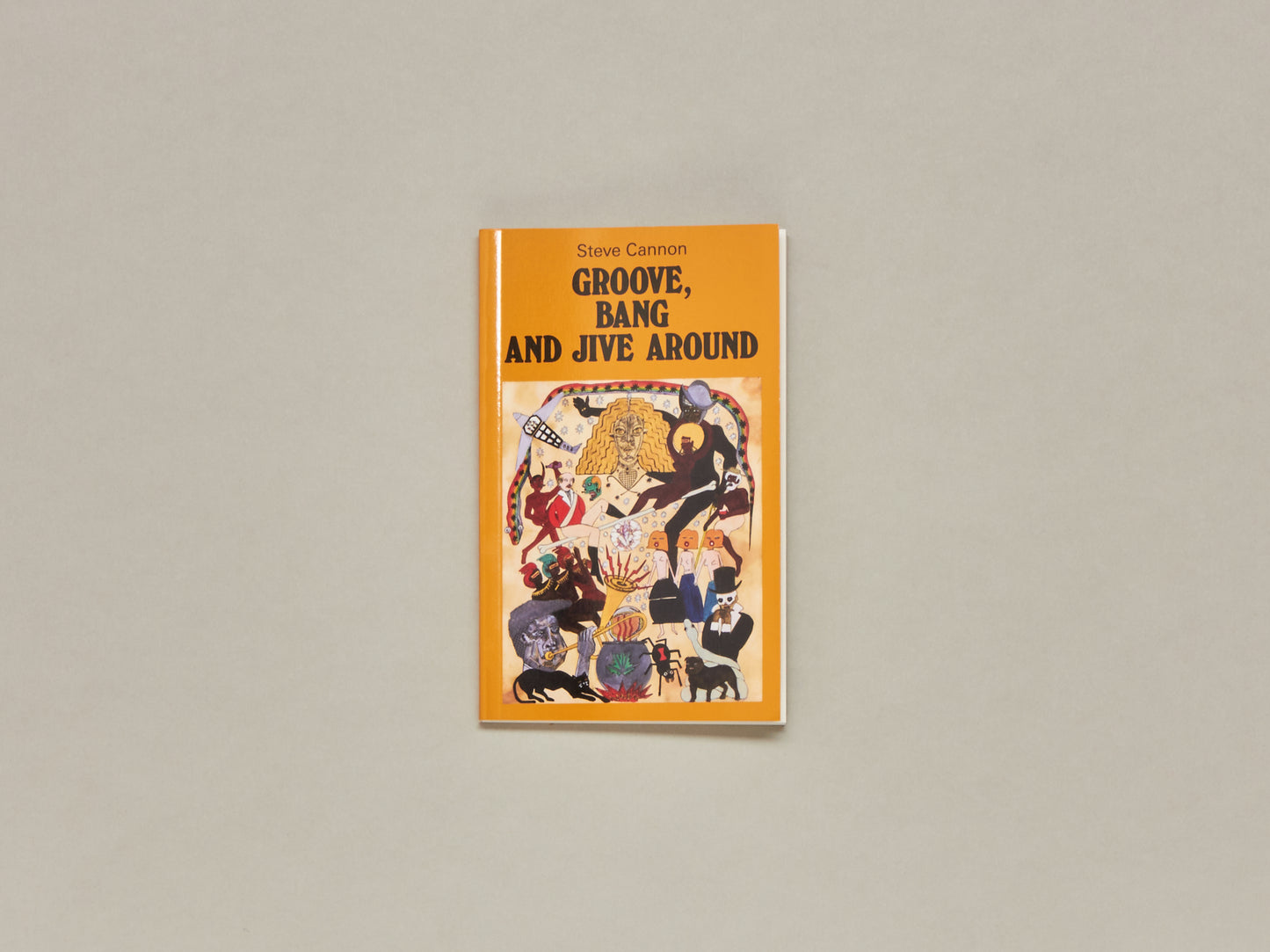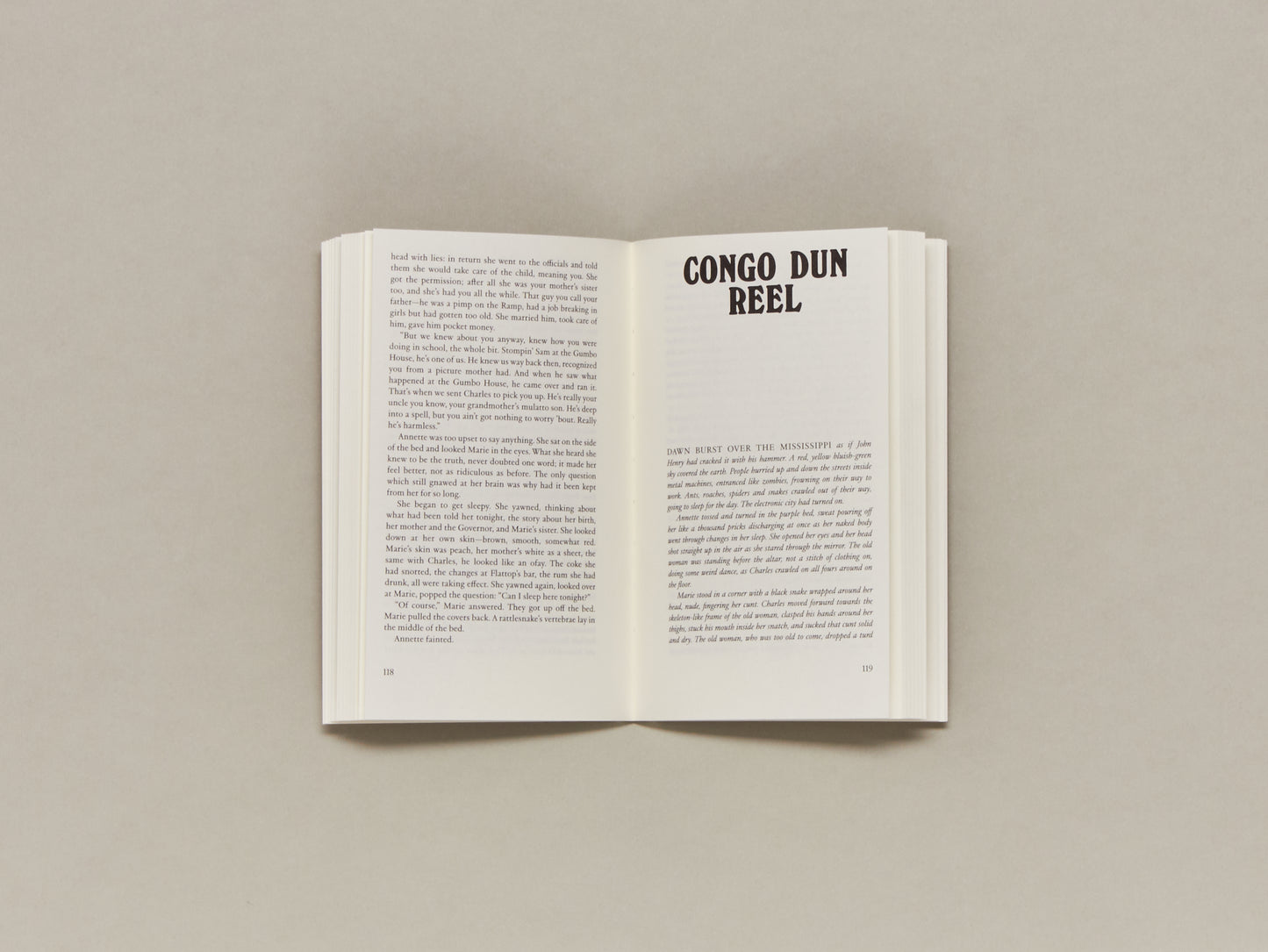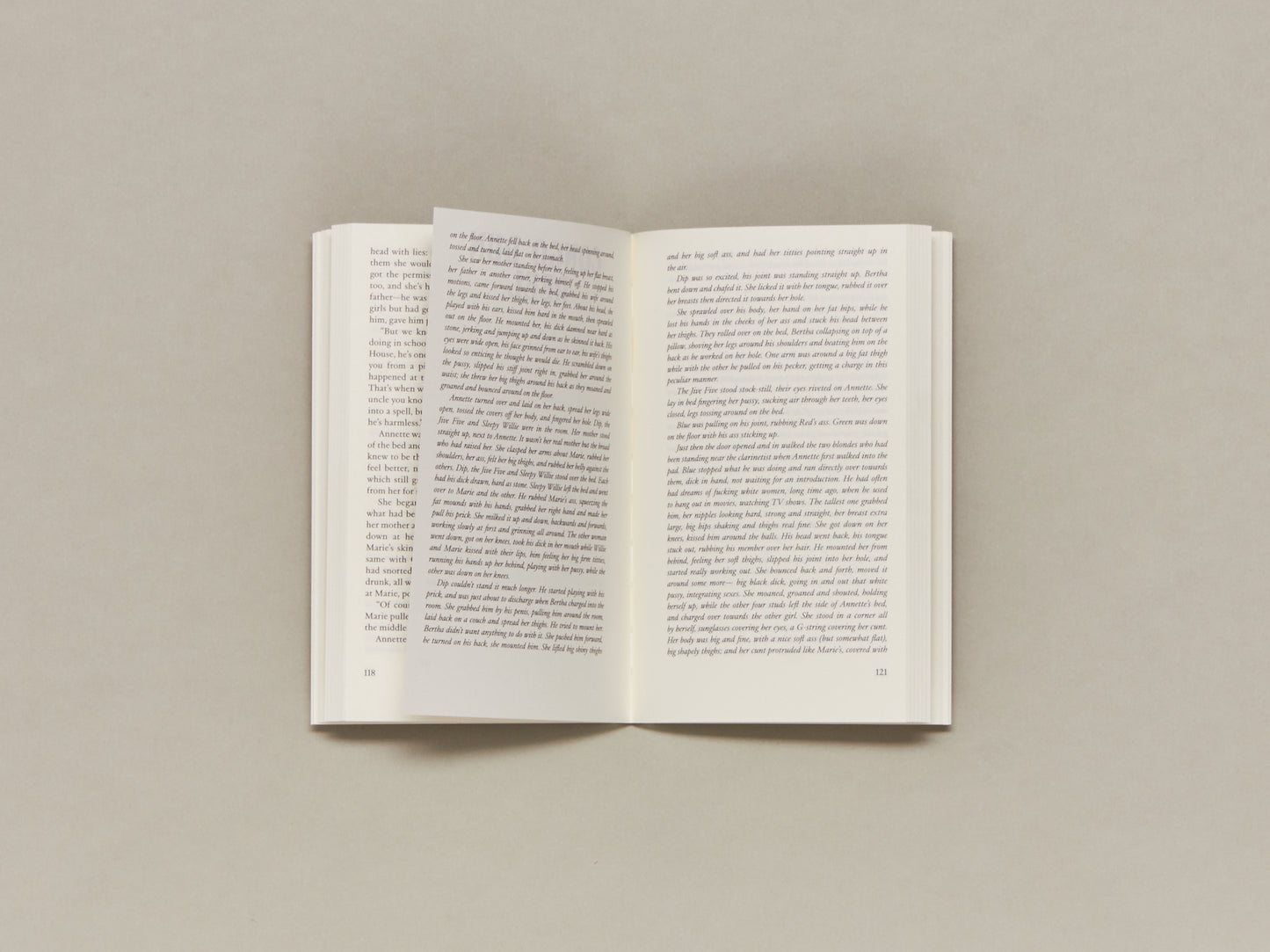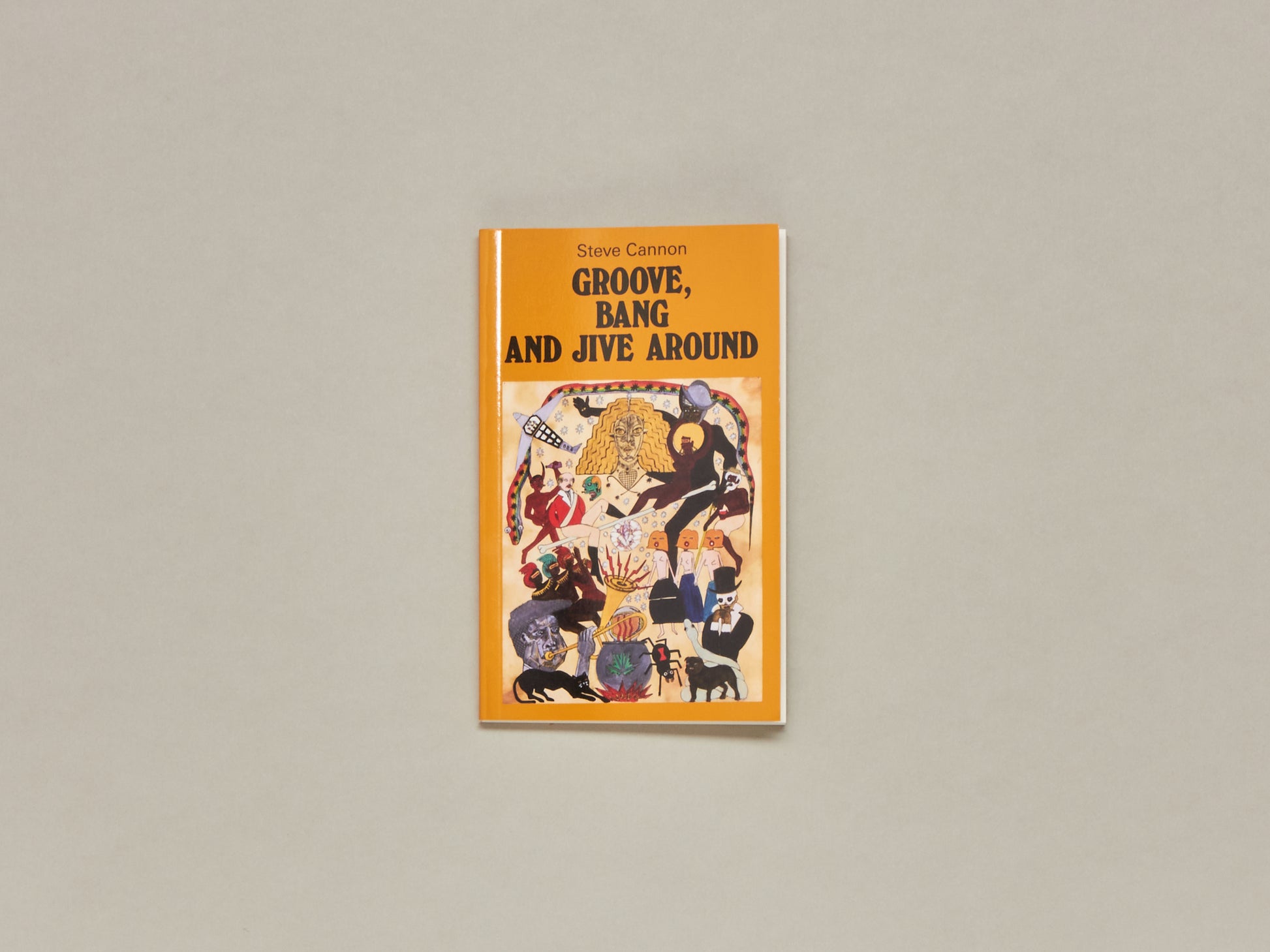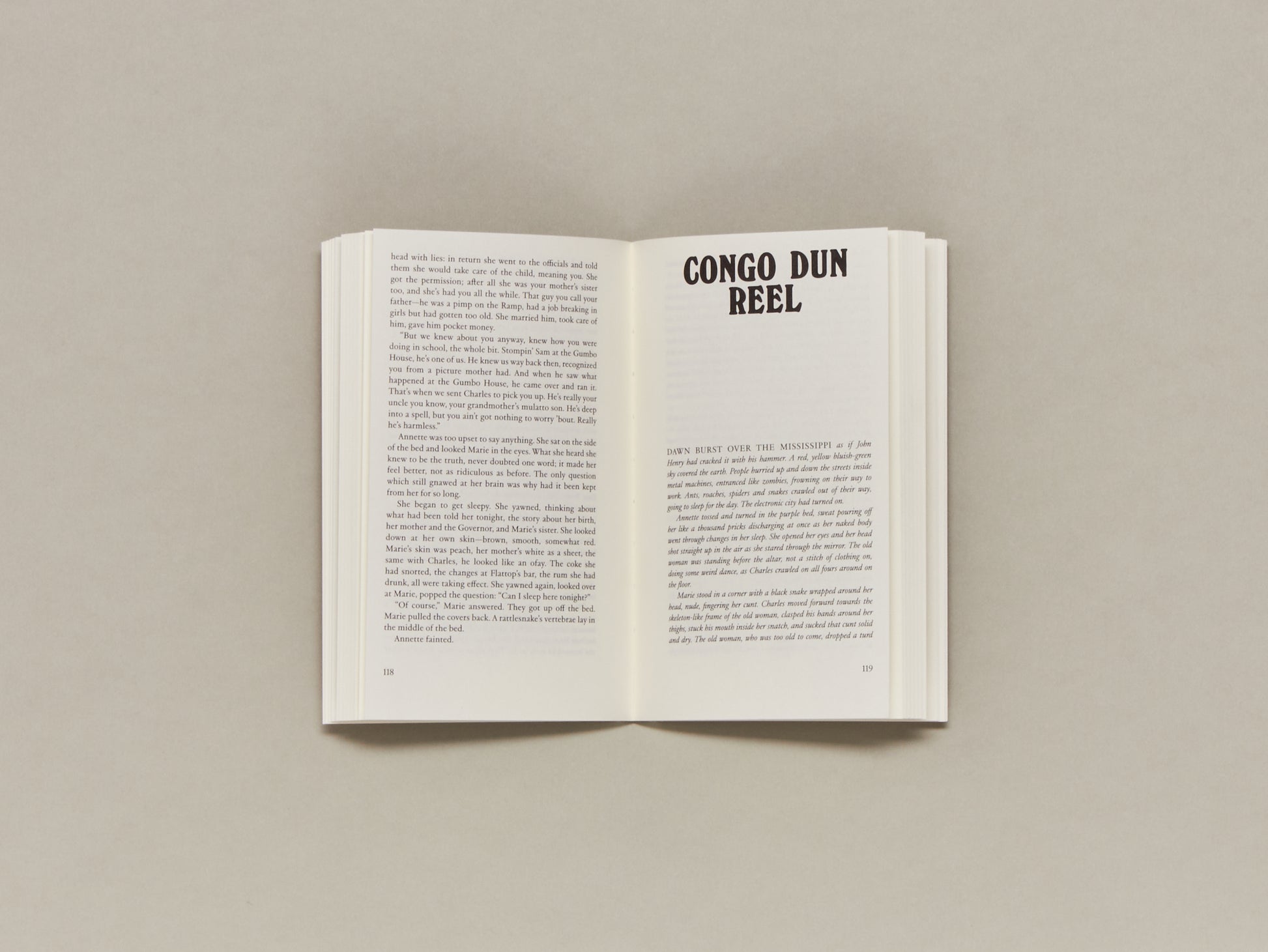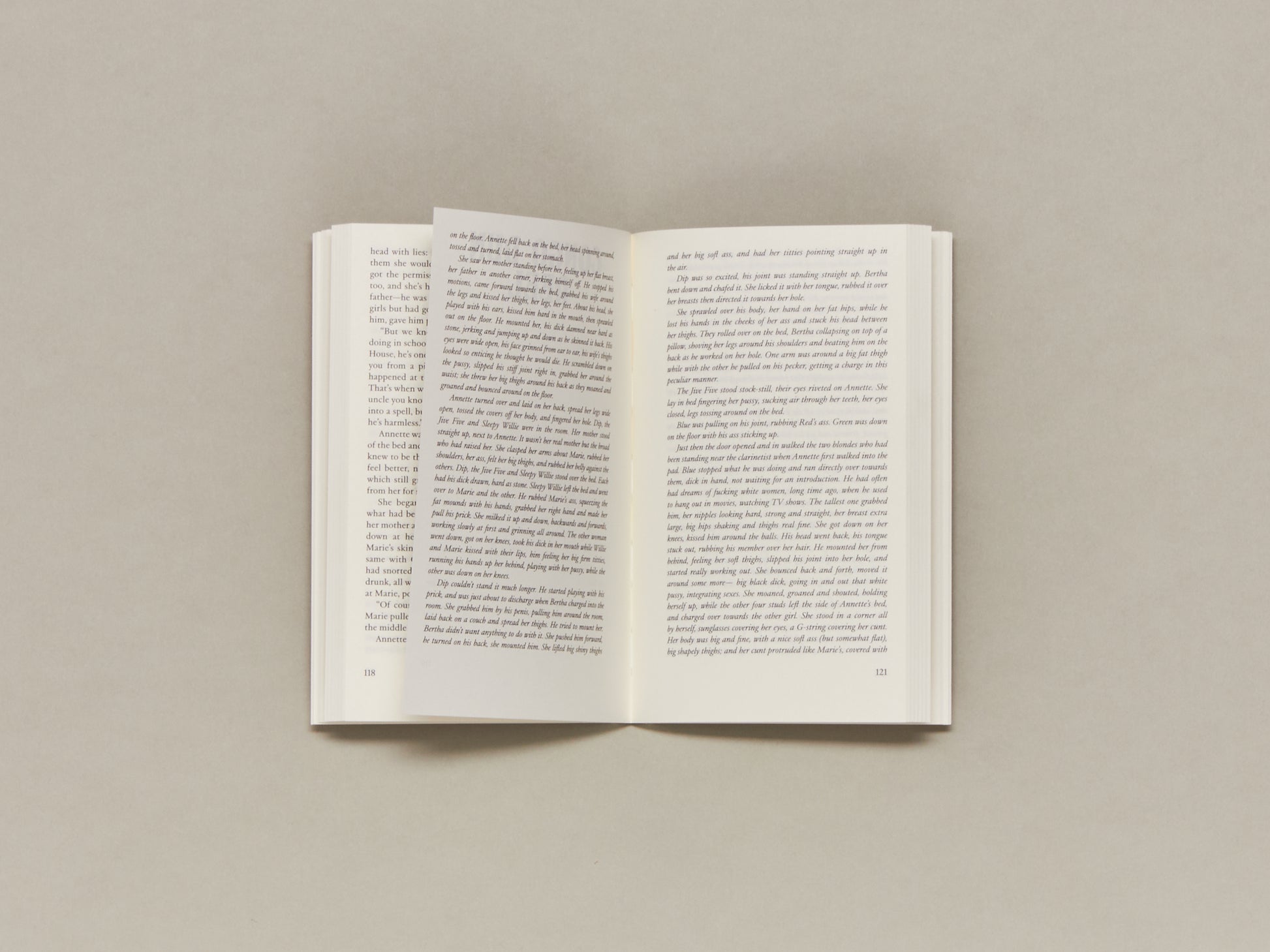Couldn't load pickup availability
Despite decades of notoriety as one of the “filthiest books in the world,” Steve Cannon’s first and only novel, Groove, Bang and Jive Around, has hardly been read since first being published by the Paris-based Ophelia Press in 1969. Due to its scarcity, the New York Press deemed it “an underground classic of such legendary stature that New York’s black cognoscenti have transmogrified the work into urban myth.” This debut, revised for release by Olympia Press in 1971, cemented Cannon’s place as a stalwart of the East Village and key figure in New York’s black avant-garde—inspiring a generation to break with staid literary modernism, according to Cannon’s friend and collaborator Ishmael Reed, for whom its release “signaled a resurfacing of the irreverent, underground trickster tradition of black orature.” Seeped psychedelia and hoodoo, this erotic farce follows Anette, a fourteen-year-old runaway, from the outhouse of a New Orleans juke joint to the land of Oo-bla-dee, a realm of bacchanalian self-determination founded by Dizzy Gillespie. Inspired equally by Chester Himes and Women's Liberation, the author claims—as Ophelia put it, Groove, Bang and Jive Around is an absolute necessity “for everyone who wants to know where and how the action takes place in Sex and Soul.”
With a foreword by Darius H. James and an afterword by Tracie Morris.
